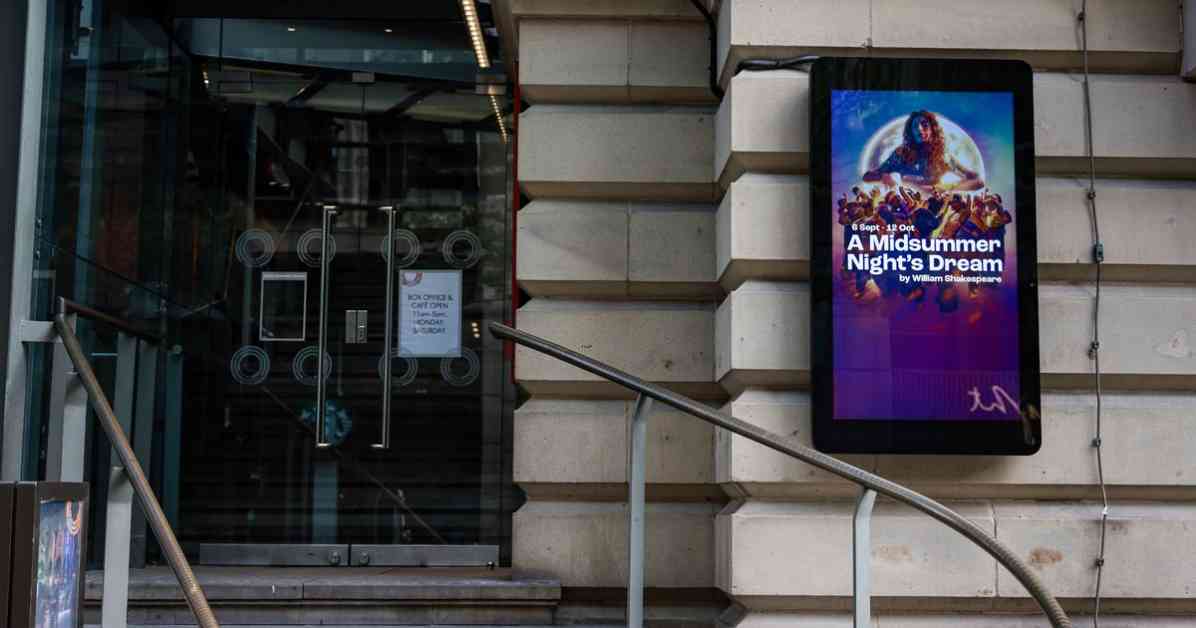The Actors’ Union Slams Royal Exchange Theatre for Censorship
An actors’ union has strongly criticized the Royal Exchange Theatre for what they perceive as a lack of transparency regarding the recent cancellation of a full run of shows. The theatre announced on Saturday that the autumn production of A Midsummer’s Night Dream would no longer be going ahead, citing a series of last-minute cancellations. The Manchester Evening News uncovered that the modern adaptation of the Shakespeare classic was axed due to a dispute over references to ‘free Palestine’ and pro-transgender rights in the play, despite the theatre initially attributing the cancellation to a cast injury and technical issues.
Equity and Stage Directors UK, two prominent unions in the entertainment industry, intervened in an attempt to resolve the conflict surrounding the production. Director Stef O’Driscoll and her cast and crew expressed anger and frustration over the sudden cancellation, with an insider revealing that she felt “ground down” by the situation. Equity held a meeting with the theatre management to address the concerns raised by the union and reiterated their commitment to fighting against censorship and defending artistic integrity and freedom of expression.
Equity spokesperson emphasized the importance of dignity at work and freedom of expression, stating, “We reject the growing culture of censorship created by funders and pressure groups. We are fighting for artistic integrity, as well as dignity for our members, and all working people.” The union remains engaged in dialogue with Royal Exchange management to uphold artistic freedom, protect the dignity of their members, and ensure the integrity of collective agreements within the industry.
The adaptation of A Midsummer’s Night Dream set in Manchester’s drum ‘n’ bass scene featured references to Palestine and trans rights that became contentious points with the theatre. At the conclusion of the production, a rapper named Snug from the group of mechanicals delivered a rap with mentions of ‘ceasefire now’, genocide, and ‘mass bloodshed’. Other rappers joined in to highlight ‘trans’ rights, while a car with graffiti reading ‘free Palestine’ was incorporated into the set. Director O’Driscoll, in her debut at the theatre, faced challenges when certain aspects of the production were questioned, leading to demands for the removal of references to ‘free Palestine’ and trans rights.
A source close to the director expressed her disappointment, stating, “The message she was told was to remove references to ‘free Palestine’ and to trans rights. She’s upset. Everyone really got suddenly interested in what she was doing. As far as she was concerned, it was all part of the scene she was setting. It isn’t about Palestine and it’s not about trans rights. It’s about a sub-culture and the world we are in. She feels absolutely ground down by what’s happened.” The Royal Exchange Theatre issued a new statement acknowledging the challenges that led to the show’s cancellation, citing injuries, technical delays, and last-minute changes as contributing factors to the difficult decision.
In their statement, the theatre spokesperson highlighted their commitment to collaborating with artists who tackle complex issues, expressing regret over the cancellation of A Midsummer Night’s Dream. Despite their efforts to overcome the obstacles faced during the production, including injuries and technical difficulties, they were unable to proceed with the show as planned. The theatre assured that every possible effort was made to bring the production to the stage, but ultimately, the decision to cancel was unavoidable.
As the controversy surrounding the cancellation of A Midsummer Night’s Dream continues to unfold, the entertainment industry grapples with questions of censorship, artistic freedom, and the responsibilities of theatre management towards their artists and productions. The actors’ union’s condemnation of the Royal Exchange Theatre’s actions underscores the ongoing tensions within the industry and the importance of upholding principles of dignity, respect, and artistic expression in the creative process.

